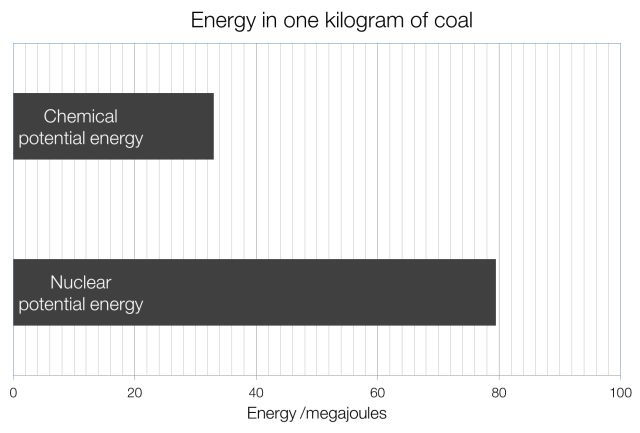One kilogram of coal contains between fourteen and thirty-three megajoules of chemical potential energy, depending on the type of coal (lignite, bitumous or anthracite).
Coal also contains trace amounts of uranium, ranging from one to ten parts per million; in a worst-case scenario one kilogram of coal could therefore be expected to contain one thousandth of one gram of uranium. As uranium has an energy density of 79.5 trillion joules per kilogram that means that one kilogram of coal contains 79.5 megajoules of energy as nuclear potential energy.
Or in graph format (and remember, this is the best-case scenario for coal and the worst-case scenario for uranium):
So there you have it: you can get more energy out of coal by grinding it up and extracting the uranium than you can from actually burning it in a coal-fired power station.*
(It’s also worth noting that coal contains about two-and-a-half times as much thorium as it does uranium, and that thorium is also a nuclear fuel.)
* You could of course burn the coal first, and then extract the uranium from the ash produced, but unlike nuclear power, burning coal is bad for the environment.

Interesting – but how much energy would be needed to extract and process the uranium into a usuable form?
I don’t have an answer for that, but it must be commercially viable because companies are buying up coal ash and extracting uranium from it for sale.
Nuclear fission is also harmful to the environment.
Incorrect. See, for example, this paper: